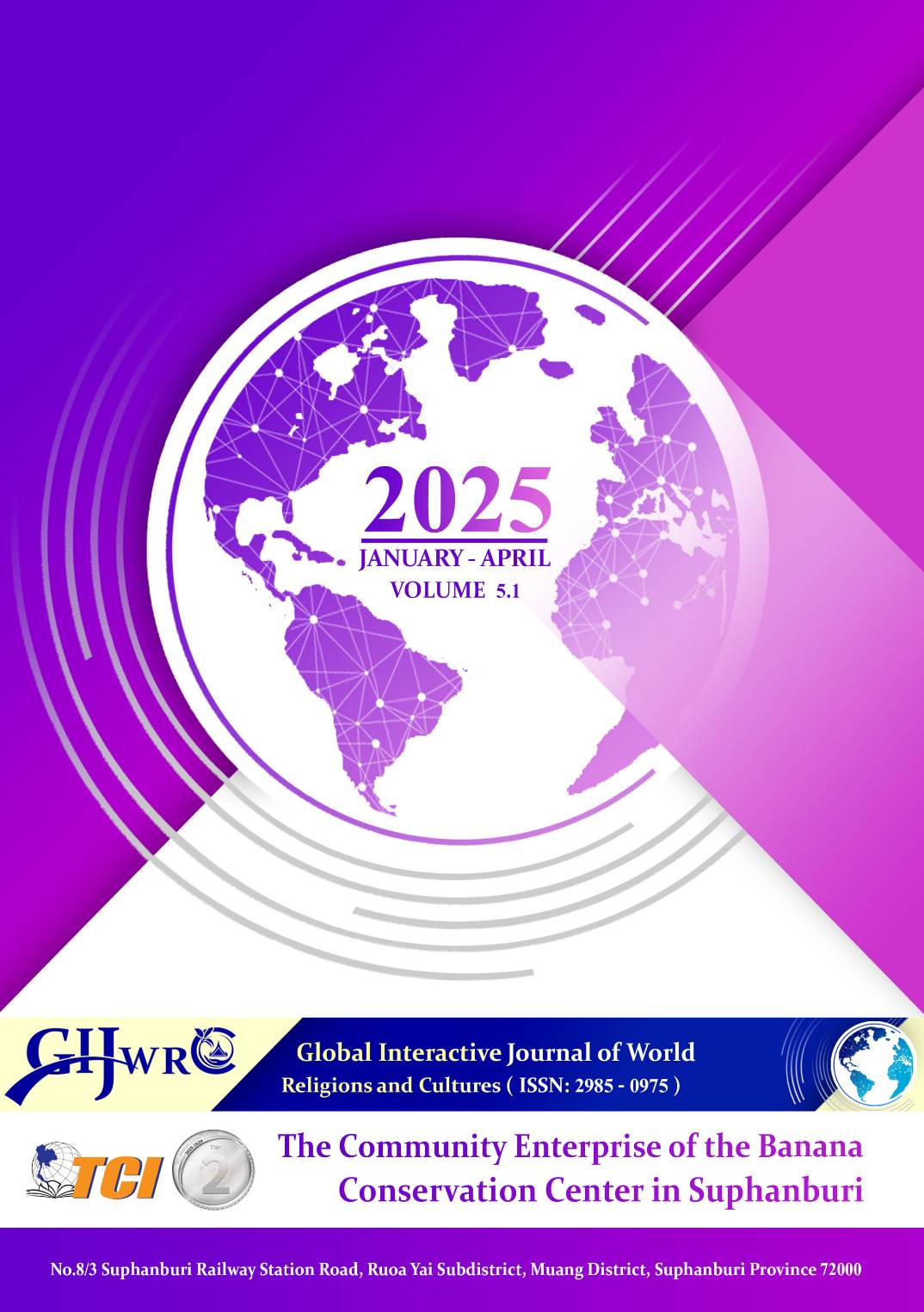THE STUDY OF THE CHINESE BEL CANTO THEORY OF PEKING UNIVERSITY’S OPERA RESEARCH INSTITUTE: A CASE STUDY OF THE OPERA JIANG JIE
Main Article Content
Abstract
The purpose of this research was to study the Chinese Bel Canto theory of Peking University’s Opera Research Institute through a case study of the opera Jiang Jie. This study aimed to explore the theoretical connotations and practical approaches of Peking University’s Chinese Bel Canto theory, analyze its specific application and artistic expression in Jiang Jie, and examine its influence on teaching models, performance practices, artistic creation, and cultural promotion. This research employed a qualitative methodology, utilizing literature review, interviews, observations, comparative research, and theoretical discussion.
The researcher divided the research method into five steps: (1) analyzing previous studies on Peking University’s Chinese Bel Canto theory and Jiang Jie to establish a comprehensive theoretical foundation, (2) collecting historical and performance-related data of Jiang Jie through literature surveys and database retrieval, (3) conducting interviews and observations with performers and audiences to evaluate the opera’s reception and its role in disseminating Chinese Bel Canto theory, (4) comparing Chinese and Western vocal techniques, emotional expression, and performance styles to assess the application of Chinese Bel Canto in Jiang Jie, and (5) exploring the development and innovation of Chinese Bel Canto in contemporary opera through theoretical discussion. The data was analyzed using descriptive analysis.
The results showed that: (1) Peking University’s Chinese Bel Canto theory integrates traditional Chinese vocal techniques with Western operatic singing, forming a unique vocal approach that balances resonance, diction, and emotional expression while reflecting core values of Chinese aesthetics, including balance, harmony, and poetic expression; (2) the opera Jiang Jie serves as a representative work that embodies Chinese Bel Canto principles, while also conveying themes deeply rooted in Chinese culture, such as loyalty, perseverance, and collective identity, which align with Confucian, Daoist, and revolutionary ideals; (3) the theory significantly influences vocal pedagogy, performance styles, and artistic creation, enriching Chinese opera while reinforcing traditional storytelling methods that emphasize moral values, national pride, and historical continuity; (4) a comparative analysis revealed the nuanced differences between Chinese and Western vocal aesthetics, highlighting the influence of Chinese tonal languages, traditional folk singing styles, and the philosophy of "qiyun shengdong" (气韵生动), which emphasizes expressive spirit and dynamic vitality in artistic performance; (5) Chinese Bel Canto theory plays a crucial role in preserving and innovating Chinese opera while fostering greater international recognition and appreciation of Chinese vocal arts, aligning with China’s broader cultural mission of revitalizing and globalizing its artistic heritage. This study highlights the theoretical and practical significance of Peking University’s Chinese Bel Canto theory and its contribution to the evolution of Chinese opera. It also provides insights into the relationship between vocal performance and Chinese cultural traditions, emphasizing how the integration of Western operatic techniques with Chinese artistic philosophy enhances both national identity and global cultural exchange.
Article Details
References
Chen, X. (2020). Reflections on the Characteristics of Chinese Opera Art. Art Appreciation (23), pp. 166-167.
Gao, M. (2017). On the Application of Ethnic, Bel Canto and Pop Singing in Singing (Master's thesis). Xi'an Conservatory of Music.
He, Y. (2016). The Origin and Development of Bel Canto in China. Voice of the Yellow River (1), p. 59.
Jin, R. (2018). The Origin and Development of Bel Canto Singing. Northern Music (10), p. 15.
Liu, Y. (2010). The Origin and Early Development of Bel Canto Singing. Opera (6), pp. 65-67.
Liu, Z. (2021). On the Emotional Expression of Excerpts from the Opera "Just Between the Mountains and Waters" (Master's thesis). University of Jinan.
Wang, N. (2022). A Study on the Paradigm of Chinese Opera Singing (Doctoral dissertation). Northeast Normal University.
Zhang, Z. (2017). Taking the opera "Jiang Jie" as an example, on the musical shaping of the character image. Northern Music (10), p. 97.
Zhu, F. (2016). Research on Vocal Works in Chinese Folk Opera (Master's thesis). Yanbian University.
Zi, R. (2019). Research on the Development Status of Chinese Opera (Master's thesis). Yunnan University of the Arts.


